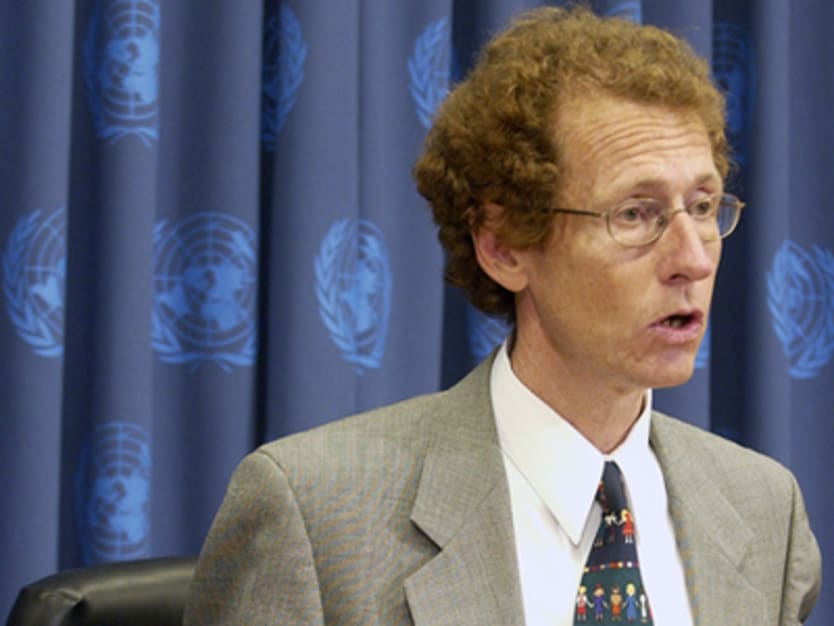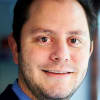
The post-MDG framework runs the risk of underachieving because “there are too many cooks in the kitchen this time around,” according to Jan Vandemoortele, one of the co-architects of the Millennium Development Goals.
While confident that the implementation of a framework “can and will be done,” Vandemoortele told Devex that he feared it would look like a “badly decorated Christmas tree” that no one wants to get too close to.
With over 30 years of experience at various United Nations bodies and as director of the Poverty Group at the U.N. Development Program between 2001 and 2005, Vandemoortele cautioned that the “clock is ticking” to achieve the MDGs currently on the table.
Looking ahead, the advisor to the U.N. Secretary-General and the Dutch secretary for development cooperation stressed the need for the international community to “keep its promises” while “listening more” and avoiding a “donor-centric approach.”
“Strong leadership” in the months ahead is essential, Vandemoortele asserted, if global development is to take steps towards its “Man on the Moon” moment by the end of the decade.
Here are some excerpts from our conversation with Vandemoortele last week in Brussels.
As a co-architect of the MDGs, how do you feel about the new process when you reflect on the work done a decade ago?
I’m surprised that this thing is still around and garnering so much attention! It’s amazing and surprising.
[In 2000] we sat down, we took the Millennium Declaration, we went through the text and we lifted the eight sentences that later became targets. We did that under the radar at a working level.
Now there is so much attention on this that you wonder whether this time around it’s actually going to be possible to reach agreement on a list of outcomes.
Do you think that there will be a list of achievable headline goals, or does such a list run the risk of being one of lowest common denominators?
I’m confident that it can be done and I’m confident that it will be done. It’s the usual approach of the technocrats versus the politicians. I’m a technocrat and I wanted to be clear, concise and simple. The politicians are going to add more to it.
I’m afraid that — as usual — it’s the latter process that will prevail and we’ll end up with what I call a “badly decorated Christmas tree” — nobody will want to get too close to it.
We will have the semblance of an international consensus, but the next day it will fall into oblivion.
So how do we ensure that the post-2015 framework doesn’t cut down on the level of ambition of the MDGs with regard to the social sectors, going beyond providing only basic levels of education, beyond primary healthcare towards health systems strengthening, etc.?
Well that is ultimately what development is about. Development is simple, it’s not “hocus pocus.” It’s about better education, better health, better water and nutrition, less gender discrimination — let’s start from there, put it into a simple framework and then of course go beyond what we had. We can expand on those things, but I’m afraid that there are too many cooks in the kitchen this time around and it will not work that well.
How can we accelerate progress towards achieving the MDGs already on the table as we near the 2015 deadline?
The clock is ticking and we won’t achieve it. And why won’t we achieve it? Mostly because of growing inequalities. And that is why inequality is so important in this debate.
But we shouldn’t be busy doing the MDGs now until the end of 2015 and then all of a sudden wake up on 1 January 2016 and say, “what now?”
It’s good that this debate is going [on] and also it’s normal that at this stage of the debate that there’s utter confusion. Let everybody come to the table and at one point leadership will have to come in and somebody will have to take charge of this process.
And that is where, as a former U.N. staff member, I’m a bit worried — I don’t see that individual or group of individuals emerging in the coming months to take charge of it, because it will be a terrible job to be the gatekeeper of that process and to say “That thing is in and that thing is not in.” I don’t see who can lead at all.
What role can the EU play with regards to this leadership? Can there be a unified EU approach to the agenda setting?
That would be fantastic, but difficult to achieve — we all know that. But at the same time [we need to] take a step back and let some leadership emerge in an international organization. This probably means the U.N. — there’s no alternative — and even if the EU doesn’t like the [route] that leadership takes, the agenda will at least support us.
Without that leadership, the thing will just result in the “Christmas tree” that doesn’t speak to anybody.
And do you think that the process signals a shift away from development aid as we know it? What are the implications for aid implementers?
The [European Report on Development] makes a strong case for aid, for ODA — that’s good and it’s needed. But it’s a moral case we have to make.
A promise is a promise — we made that promise and we’re not keeping it.
Whether we keep the promise or not, the mistake we make is that it has little or no relevance for achieving the MDGs. And that’s a very donor-centric misunderstanding.
It’s normal that if I give, I want to be seen as important, but imagine that all donor countries tomorrow become enlightened and they spend 0.7 percent [of GNI]. That amount of money — and it would be a huge amount of money — would have limited impact on the MDGs, because development is essentially bottom-up.
But it doesn’t take away the importance of us keeping that promise and showing international solidarity.
We hear a lot from the European Commission about solidarity and other values such as social market principles, equity and human rights that have helped counter poverty and bring stability in the EU member states. Can Europe harness its experience and take the lead on this issue?
We run the risk of creating an indifference on the part of the countries that matter — the BRICS and the other big, emerging economies.
Look, we have enough instruments on the table already to reinforce those values and human rights concerns. We have the whole gamut. I don’t believe that we need to repeat them for every little thing we put on the table for development.
Don’t get me wrong, I’m certainly not against human rights, equitable development and good governance — but we don’t need to add those values to an already complicated agenda for development to foster progress. It’s not going to work, it’s going to fail.
Many of the southern partners are skeptical because they perceive that [we are] trying to defend the old narrative when we were rulers of the world. We have to accept — in all humility — that perhaps this time around, it’s time to listen a bit more.
But do you think that values such as human rights can be negotiable?
No, not negotiable, but we are going back to a development agenda. It’s about better health, better education, better water — of course, part of that is human rights and we can build that into an equity agenda next time around take better care of inequalities. And there the consensus is almost universal.
But don’t go back to those human rights declarations, which are perceived as objectionable. Many of those countries have already signed up to that and there’s a monitoring mechanism — but let us not preach.
Do you think that the EU is fighting a losing battle to ensure that its member states stick to their ODA commitments in times of financial crisis and austerity?
These are the moments in history where you need leadership that is way above average. The easy way out is to say “we can’t do it, it’s impossible,” but that’s when we need leaders who can say “we will put a man on the Moon by the end of the decade.”
I don’t see that leadership within the EU constellation and I’m afraid that man is not going to be on the Moon any time soon.
Read more development aid news online, and subscribe to The Development Newswire to receive top international development headlines from the world’s leading donors, news sources and opinion leaders — emailed to you FREE every business day.








